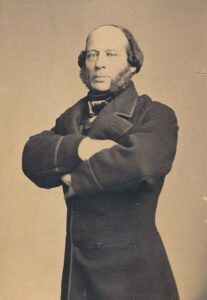Over the years there have been several adaptations regarding the biblical story of Noah’s Ark, whether the comedy film starring Steve Carell, or a film narrating the Bible story. However, the adaptation that the majority of people do not recognize is the Bible story itself. The story of Noah and his ark was actually adapted from the eleventh and twelfth tablets of the Epic of Gilgamesh. The Epic of Gilgamesh is an epic poem that narrates the adventures of a fictional hero named Gilgamesh.1 The reason that Noah’s Ark is an adaptation is due to the many parallels between the two stories. Some similarities include the wrath of a deity upon humankind, as well as the creation of a type of vessel in order to survive the flood.
Before the 19th century, the Bible was believed to be the most credible source of historical information about the Ancient Near East. However,“The Epic of Gilgamesh is the oldest surviving epic poem in history, dating from about 2500 B.C.E.”2 The discovery of the Epic of Gilgamesh, specifically the tablets containing the excerpts detailing the Great Flood myth, caused turmoil among the ancient historical community, due to the fact that the Great Flood myth was written about a thousand years before the Bible story of Noah.3

The eleventh tablet narrates one of Gilgamesh’s adventures in search for immortality.4 Yet his search leads him to a wise man named Utnapishtim. Utnapishtim then reveals to Gilgamesh how he achieved immortality. He begins to explain how the god Ea informed him of the devastating flood created by the gods in order to extinguish humanity. He was instructed to construct a boat of immense size and to tell the people of Shuruppak to assist him in the building of the boat. Once the boat was complete, he was to load it with every living thing and his family in order to survive. Seven days later the great flood began its reign of destruction upon humankind. During this time, Utnapishtim and his ark ran aground on a mountain peak. He then released a dove in order to find land but the dove returned, not having found land. The same thing happened when he sends a swallow. However, the third time he releases a raven that never returned. Upon reaching land, the gods in heaven realized the great service Utnapishtim had done by saving humankind; thus, they granted him and his wife eternal life.
Much like the Epic of Gilgamesh, the story of Noah’s Ark conveys a similar destruction tale.5 The book of Genesis narrates how God began to despair over the creation of humankind due to humanity becoming sinful and evil. Therefore, God decided to create an immense flood in order to destroy and cleanse the world. However, God chose a man named Noah due to his immaculate behavior, and He instructed him to build a boat or an ark. Once he completed the ark, he was to load it with a pair of every animal on earth along with his family. For the next forty days, God plunged the earth with devastating rains, causing the earth to be flooded for a whole year. Noah then released a dove and it never returned, meaning that it had found dry land. Once the water receded, the earth was restored and became once again fertile. God made a covenant with Noah promising that his lineage will be fertile and that he will never destroy humanity again by flood.
The parallels between both stories are clear to see, due to the similarity in content and story structure. For example, both narratives include an extremely powerful deity or deities, that form a plan to wipe out humankind by creating a great flood in order to restore the earth, as well as how a single man was chosen by a higher power to save humanity.6 Another parallel is how both individuals were instructed to construct a boat in order to survive the coming flood. The content of both vessels is also similar due to them being loaded with all the living things on earth, even though in the Epic of Gilgamesh it was all living things while in Noah it was the pair of every animal on earth, along with their families. Once the earth was flooded, both Utnapishtim and Noah release birds in order to find out if the land was yet dry. Finally, both men upon reaching land are rewarded by higher powers, due to their involvement in saving humanity, and the creation of a new world.
- Benjamin R. Foster, Douglas Frayne, and Gary M. Beckman, The epic of Gilgamesh: a new translation, analogues, criticism (New York: Norton, 2001), 60-65. ↵
- Jerry Bentley, Herbert Ziegler, Heather Streets Salter, Traditions & Encounters: A Brief Global History Volume 1 (New York, NY: McGraw-Hill Publishers, 2016), 17. ↵
- James B. Pritchard, Ancient Near Eastern texts relating to the Old Testament (Princeton, N.J.: Princeton University Press, 1969), 3. ↵
- Pritchard, Ancient Near Eastern texts, 273. ↵
- Jerry Pinkney, Noah’s ark (New York : SeaStar Books, 2002), 20-30. ↵
- Pritchard, Ancient Near Eastern texts, 10. ↵



110 comments
Micaela Cruz
I had only heard about the Epic of Gilgamesh maybe once before reading this article but I was not aware of the fascinating similarities it shared with the story of Noah’s ark. This article provided deeper insight into the similarities of both stories, and it provides the audience with a deeper understanding of both stories. What I found interesting was the large span of time between both stories yet they are almost identical in their story line.
Daniela Duran
This was a very interesting and well-structured article with lots of historical insight and analysis! I would have never imagined that a story so similar to that of Noah’s ark would have existed long before the bible was written. The similarities are evident, and, as the author describes, they are almost identical in various aspects. I was surprised by the fact that in Gilgamesh’s story, the chosen man was asked to board all living creatures into his boat! that is outrageous! It is always amazing to read things like this, which remind us of the great value of biblical stories, and the historical contributions that they make. I certainly can’t explain where the similarities come from, but it would definitely be interesting to speak with a priest, and ask them what Noah’s’ story is about, what does it mean in religious theological terms, how is it related to this other story and what historical value does it have! If we ever are in doubt of such things, a priest is a great person to talk to! This article inspired me to seek for even more biblical knowledge. I liked the structure and language choices, because it made it easier for me to follow through. I also like the summarizing part at the end, because it clarified very specifically what were the similarities between both stories.
Eric Ortega Rodriguez
Wow, this article was extremely fascinating. First of all, I grew up reading the story of Noah and his arc but I never knew that there were other stories similar to it. I find it interesting how similar the stories are. Especially in the end, when they use a bird to discover whether the earth is ready to sustain life once again and everything occurring because of a mad deity. It was fascinating to read about the influence The Epic of Gilgamesh had since there are now numerous versions of it.
Alexander Manibusan
What’s very interesting is that numerous cultures believe in a great flood. The Greeks believed in it, the Romans too, the Maya (found in the text called the Popol Vuh) and many more. What I would like to think is that this flood actually did happen, mainly because so many cultures mention the same thing more or less. But how is it that the Bible matches so similarly with the Epic of Gilgamesh? Did someone twist the story? For what purpose? I want to think that the Bible is one of the most credible things in historical information. But I can’t help but be heartbroken that Noah’s story seems to be almost a replica of the Epic of Gilgamesh.
Christopher Hohman
Nice article. It is interesting to see where the ancient Israelites got their inspiration for some of their stories. It is clear that the epic of Gilgamesh played an important part in writing of the Noah flood story. In my sophomore religion class my teacher once told us that every major civilization in the ancient world recorded a great flood around the same time. I wonder whether or not this flood actually occurred in history and spawned stories like the epic of Gilgamesh or Noah’s Ark.
Cristina Cabello
There are so many different versions of Noah’s Arch. I watch the one movie with Emma Watson and it really set a different perspective on the story. But I really liked how you developed your own version. It is crazy how God works and how everything is for a reason. I think it is really creative to put the story of Gilgamesh along with this article. It was a good read.
Joshua Castro
This article was brilliant! The story of Noah’s Ark has always been a favorite of mine from the Bible. Although, I have never compared it with any other stories as this article did. I was so surprised to see the many similarities between the story of Noah’s Ark and the Epic of Gilgamesh even though they are both separated by a large period of time. This article took an approach that is not often seen in other articles and I loved it!
Hector Garcia
I found it quite fascinating to put both of these stories side by side. What surprised me the most from this article was that The Epic of Gilgamesh was written nearly one thousand years before the Bible story of Noah. I also found the story of Gilgamesh quite inspiring. Overall, I thought that this article quite interesting because it brings into perspective, two stories that are suspiciously similar.
Natalia Flores
This is extraordinary! I vaguely remember back in my literature class in high school that one of our readings said that there was no such thing as an original story anymore. The parallels between Noah’s ark and Gilgamesh’s is something that cannot be ignored due to the fact that they both survived a great flood caused by an angry deity. It also goes to show how influential the epic of Gilgamesh was since it lead into the Story of Noah’s Ark. Very interesting read.
Rafael Lopez-Rodriguez
Good article telling the story of Noah’s Arch. When they first tell you about this story they tell you that Noah had to build an arch in order to save humankind from the “devil”. After reading this it changes your perception of this common known story because it can bring questions to weather from what story influenced the other. Very interesting read.